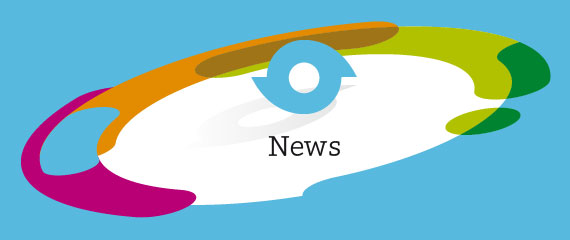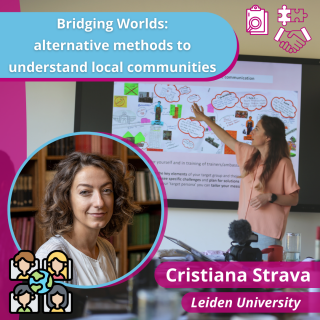Dr. Cristiana Strava is a social anthropologist, working as an assistant professor at the Leiden University Institute for Area Studies, and is also affiliated to the African Studies Centre Leiden. She focusses on issues related to climate change and urban spaces. LeidenGlobal spoke with her on her research that shows how she is bridging worlds, and how she uses alternative methods to better understand local communities.
Originally being from Romania, dr. Strava went abroad to do her bachelor’s in anthropology, visual and environmental studies at Harvard University. She then travelled around Nigeria, Morocco and Tanzania for two years to work on different projects for development organisations. She visited the communities she had studied previously and learned how they dealt with challenges such as droughts and floods. Afterwards, she moved to London to do a PhD at SOAS University of London, which focussed on poverty alleviation in Morocco. She has been working for Leiden University ever since obtaining her doctorate degree. One of her research focusses now is adaptation to climate change and how big infrastructural projects build for sustainability purposes impact local communities. When talking about her work, she expressed: “I love doing this work that brings together policy makers, communities, activists and corporations, being out in the field and making connections between different places that are separate and being the person that moves between them.”
For LeidenGlobal’s course ‘Beyond Discipline and Place in the Social Sciences and Humanities’, she will be giving a lecture as the last speaker of the lecture series. She will be talking about her experience carrying out research in marginalised communities and will reflect on how to do ethical research.
For this lecture, she’s excited to be talking about the practical aspect of doing research. “Researchers tend to assume people know what we do and just do their research,” she mentioned. When doing research for her PhD in Morocco, she went into a marginalised and criminalised neighbourhood. She gave out disposable cameras and asked residents to keep a photo diary and later used these pictures to talk with them about their life challenges. “When going into these communities, you must keep in mind things like illiteracy and that people might not automatically want to talk to you. A survey in this case might not be an effective research tool.” Her talk will focus on research methods that give people the opportunity to express their concerns, and hopes to encourage researchers to use more visual and other alternative research methods.
To further advocate for experimenting with different research approaches, she’s part of ReCNTR, a group for people across Leiden University that are interested in more artistic and creative methods to do research. “It could give a lot of insights that you can’t get in traditional ways. Additionally, we could use these tools to communicate our research, so more people can better understand what we’re doing.” (ReCNTR)
She also advocates for more teamwork, between disciplines but also within the humanities faculty. “Putting different pieces of the puzzle together is much easier when you have multiple people that all have different perspectives and insights. To fight big issues like climate change, we need more people from different disciplines to work together.”
Interview by Eline Raukema, LeidenGlobal intern
November 2024

